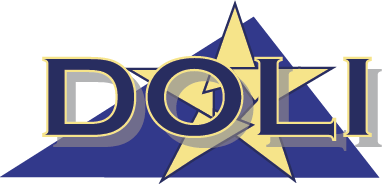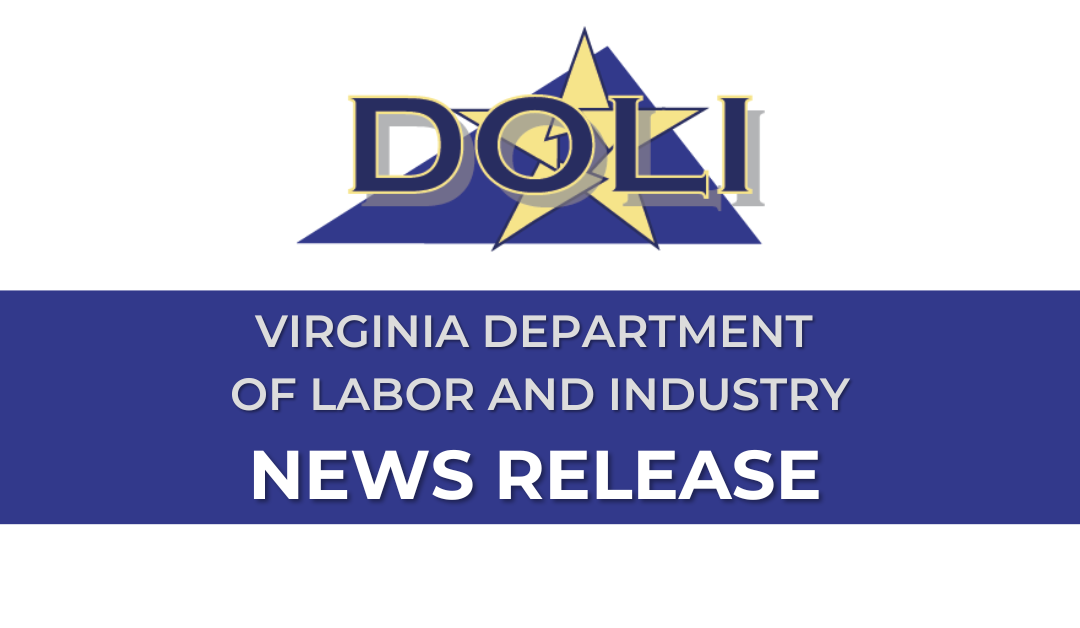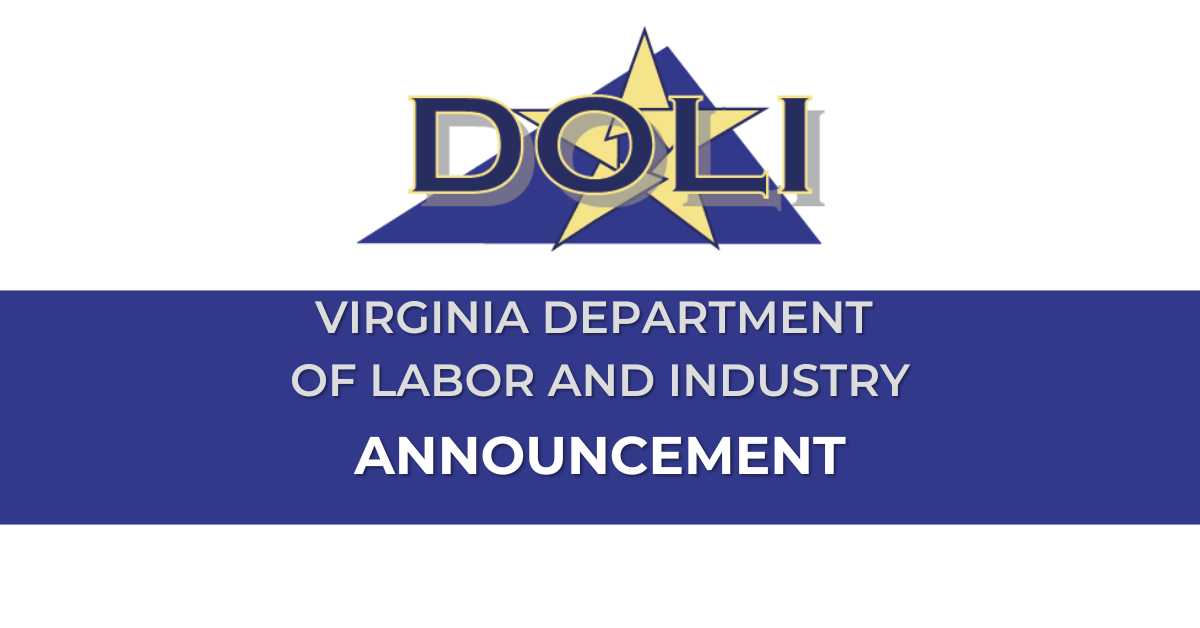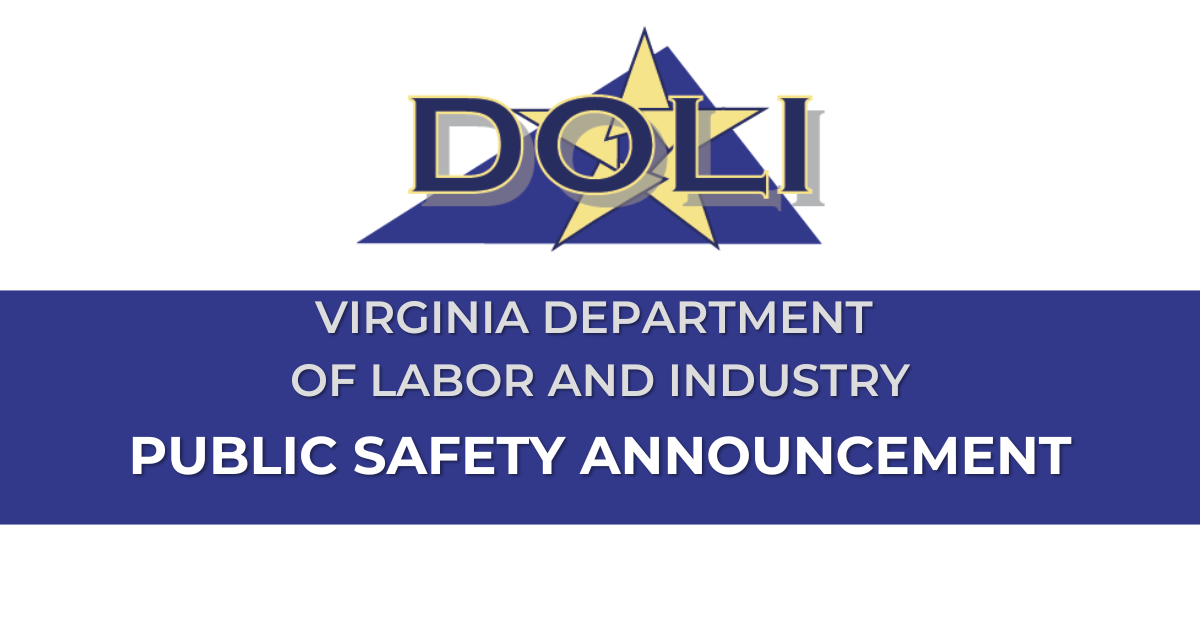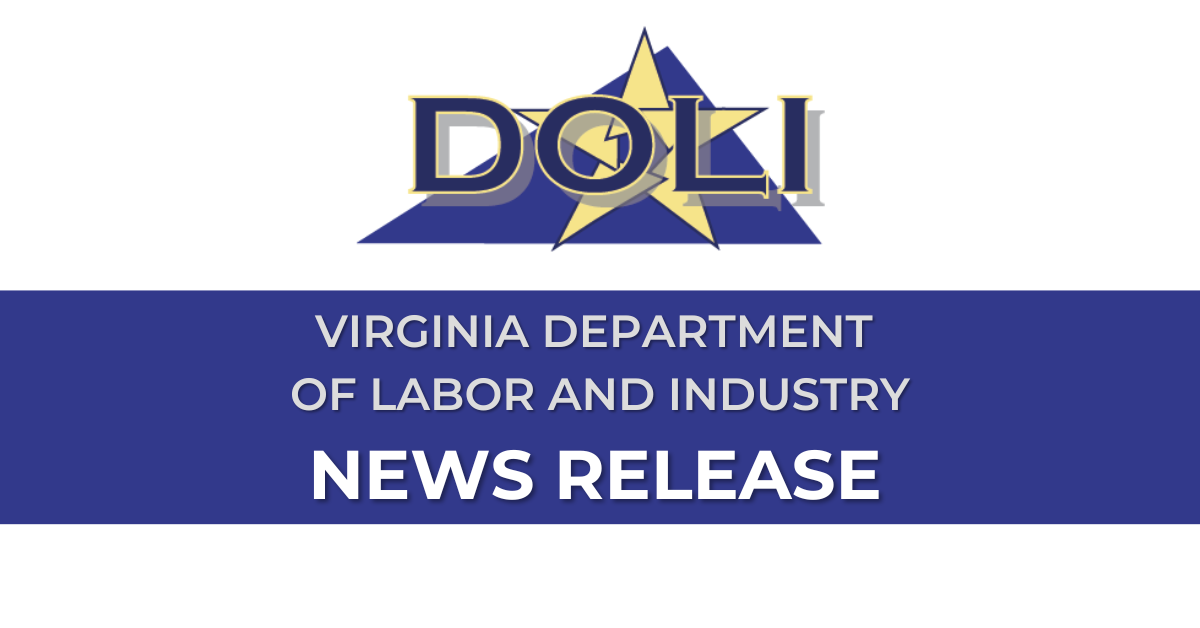RICHMOND, VA – Effective July 1, 2023, legislation passed by the General Assembly during the 2023 session will go into effect, which alter existing labor laws and create new protections for workers in the Commonwealth. These bi-partisan measures help advance Governor Glenn Youngkin’s goals of accelerating Virginia’s economy and keeping Virginians safe.
“In our effort to keep Virginia as the top place in the nation to live and work, these sensible new laws create protections for hard working Virginians, while strategically removing barriers to entry for certain career paths,” said Secretary of Labor Bryan Slater. “It’s a win-win scenario for Virginians.”
Children Ages Sixteen Years or Older in Registered Apprenticeship to work in Certain Occupations:
Children aged sixteen or older may be permitted to work in barbershops or cosmetology salons under certain circumstances. Senate Bill 1363 amends § 40.1-100 Code of Virginia to add this exemption.
Under § 40.1-100 Code of Virginia, certain employment for youth employees is prohibited or limited. Included in these limitations is the prohibition of any child under eighteen years of age from performing work “in any capacity in preparing any composition in which dangerous or poisonous chemicals are used.” Under Senate Bill 1363, children aged sixteen years or older who are registered apprentices may serve in a barbershop or cosmetology salon licensed by the Virginia Department of Professional and Occupational Regulation’s Board for Barbers and Cosmetology, in accordance with the Board’s regulations.
Information about Registered Apprenticeship programs can be obtained by contacting DOLI’s Division of Registered Apprenticeship at https://www.doli.virginia.gov/registered-apprenticeship/. Information about regulation and licensure under the Board for Barbers and Cosmetology can be obtained by contacting the Board Office at (804) 367-8590.
Employer Use of Employee Social Security Numbers:
New legislation limits employers from using employee Social Security numbers as identifying information on certain employer-issued records. Senate Bill 1040 amends the Code of Virginia to add § 40.1-28.7:10. This statute prohibits an employer from using an employee’s Social Security number, or any derivative thereof, as an employee identification number or as part of an identification card or badge, access card or badge, or any other similar employer-issued card or badge.
The legislation also delegates enforcement of the statute to the Commissioner of DOLI. DOLI will investigate complaints brought upon by employees alleging improper use of their Social Security number. Employers found in violation of the statute shall be subject to a civil penalty for each violation found. DOLI may also petition a circuit court for injunctive relief in the event that an employer fails to remedy their improper usage of employee Social Security numbers.
Unpaid Organ Donation Leave:
New legislation requires employers within the Commonwealth, including the Commonwealth, its agencies, and its political subdivisions, to provide unpaid organ donation leave to eligible employees. Senate Bill 1086 amends the Code of Virginia to add §§ 40.1-33.7 through 40.1-33.12. These statutes create the requirement that employers provide eligible employees with up to 60 business days of unpaid organ donation leave to serve as an organ donor and up to 30 business days of unpaid organ donation leave to serve as a bone marrow donor.
To be considered eligible, an employee must have been employed for at least a 12-month period and 1,250 hours during the previous 12 months from the date that the leave period begins. The employee must also provide written physician verification to the employer that they are a donor and that there is a medical necessity for the donation. Employers may not consider an employee’s use of unpaid organ donation leave a break in continuous service with respect to the accrual of employee benefits or the continuation of an employer-provided health benefit plan. An employer is also prohibited from retaliating against an employee for requesting or exercising their rights to unpaid organ donation leave or alleging their rights to unpaid organ donation leave were violated.
The change also delegates enforcement of the unpaid organ donation leave requirement to the Commissioner of DOLI. DOLI will investigate complaints brought upon by employees alleging a violation of their statutory rights and attempt to mediate resolution between the employer and employee. Employers found in violation of the statute may also be subject to a civil penalty. General information about living organ donation can be obtained by contacting the Virginia Transplant Council dba Donate Life Virginia at (866) 823-6667.
Minimum Wage Exemption Removed for Certain Workers with Disabilities:
Coverage extended to workers in Virginia under the Virginia Minimum Wage Act will be amended by House Bill 1924. The legislation amends the existing exemption under § 40.1-28.9 Code of Virginia for any person who is paid pursuant to 29 U.S.C. §214(c) of the Fair Labor Standards Act of 1938, as amended.
Individuals employed under Section 14(c) Certificates issued by the United States Department of Labor’s Wage and Hour Division will no longer be exempt from the Virginia Minimum Wage Act if such certificate was issued on or after July 1, 2023. Individuals employed under certificates issued prior to July 1, 2023 will continue to be exempt from the Virginia Minimum Wage Act pending the second enactment of House Bill 1924 on July 1, 2030.
About the Agency:
It is the mission of the Virginia Department of Labor and Industry (DOLI) to make Virginia a better place in which to work, live, and conduct business. DOLI’s Labor and Employment Law Division administers and enforces the laws of the Commonwealth that govern employee pay, the employment of children, and certain other statutes that relate to the workplace, including the new legislation referenced above. Additional information about coverage and requirements under the new legislation can be obtained by contacting the Division’s Payment of Wage Unit at (804) 786-2706 or at laborlaw@doli.virginia.gov.
